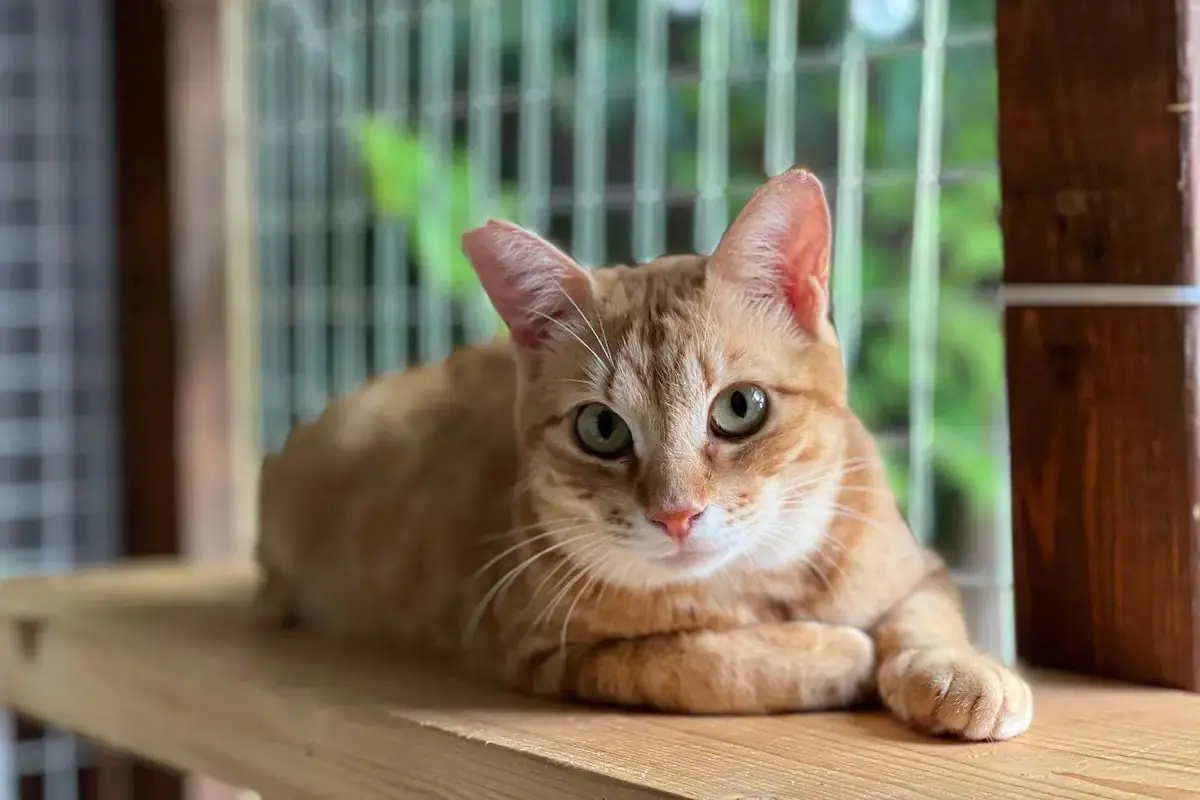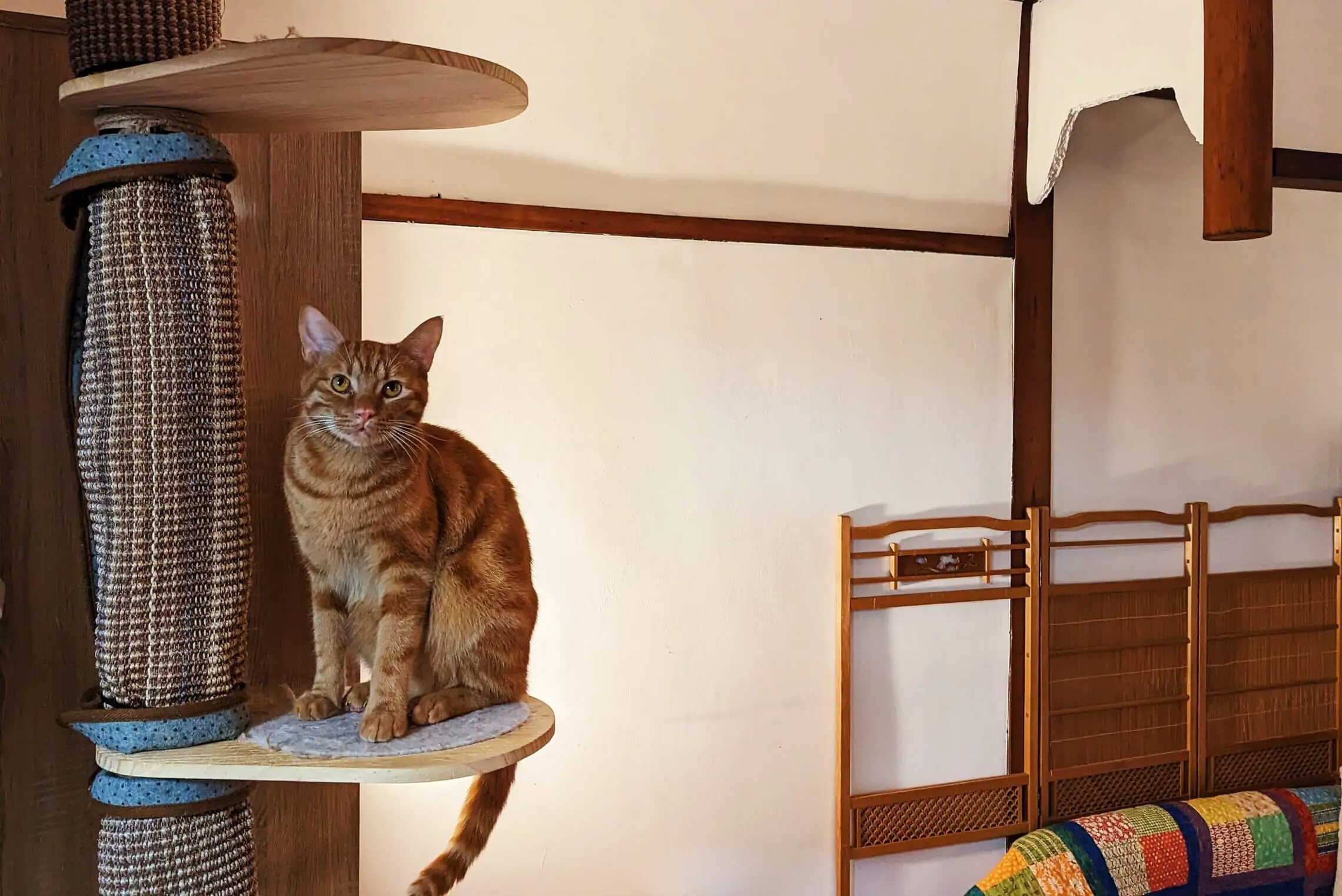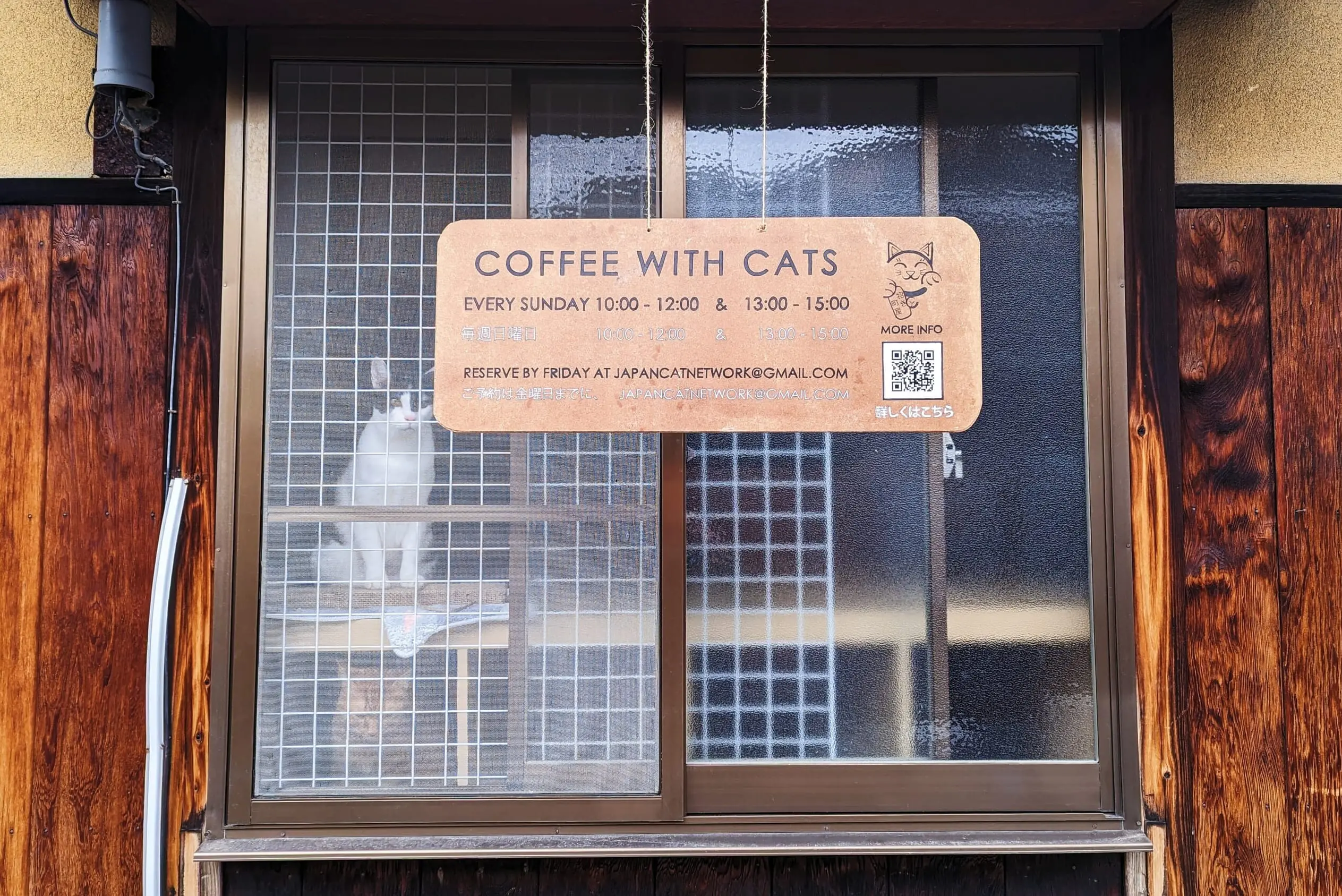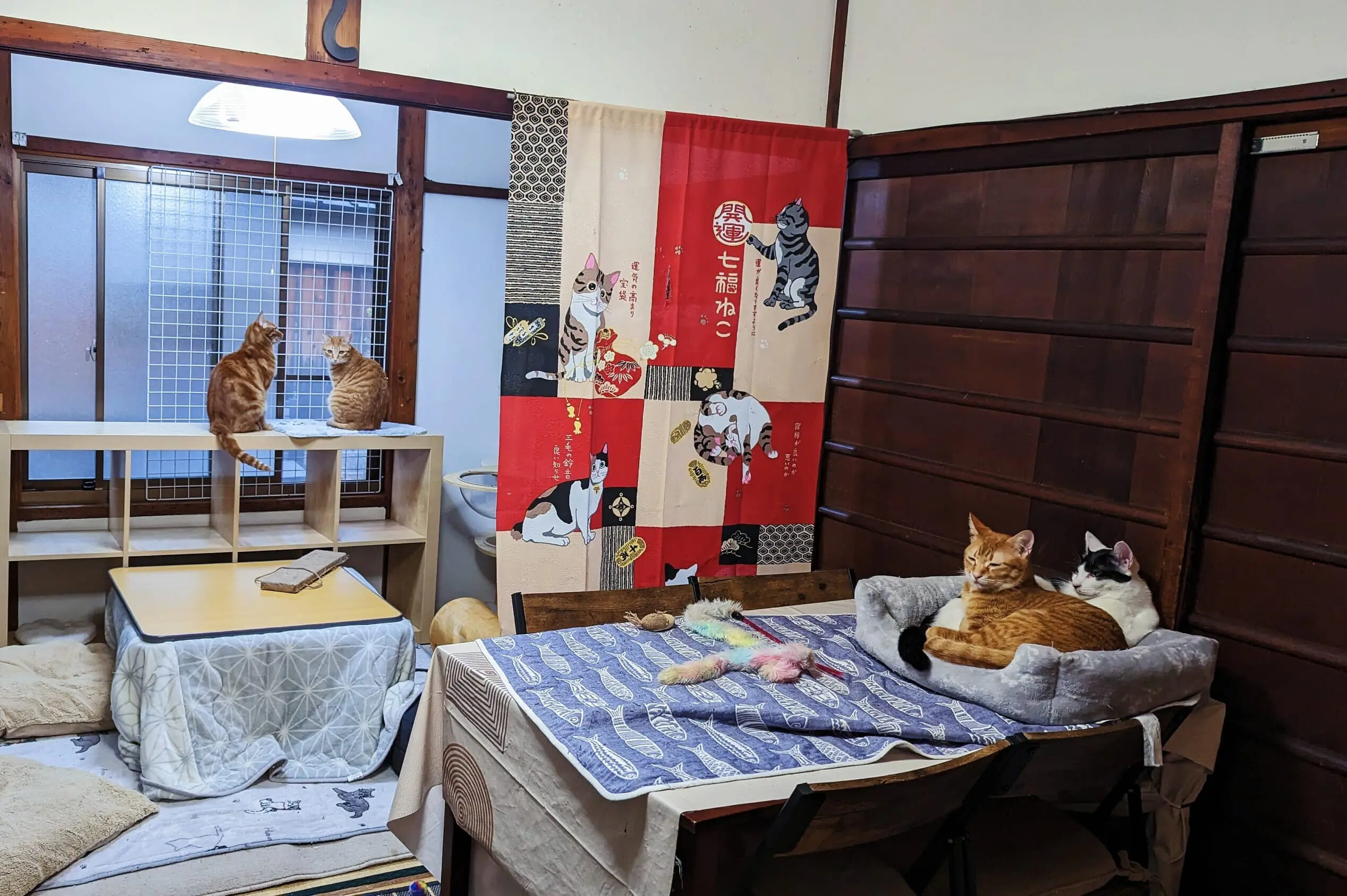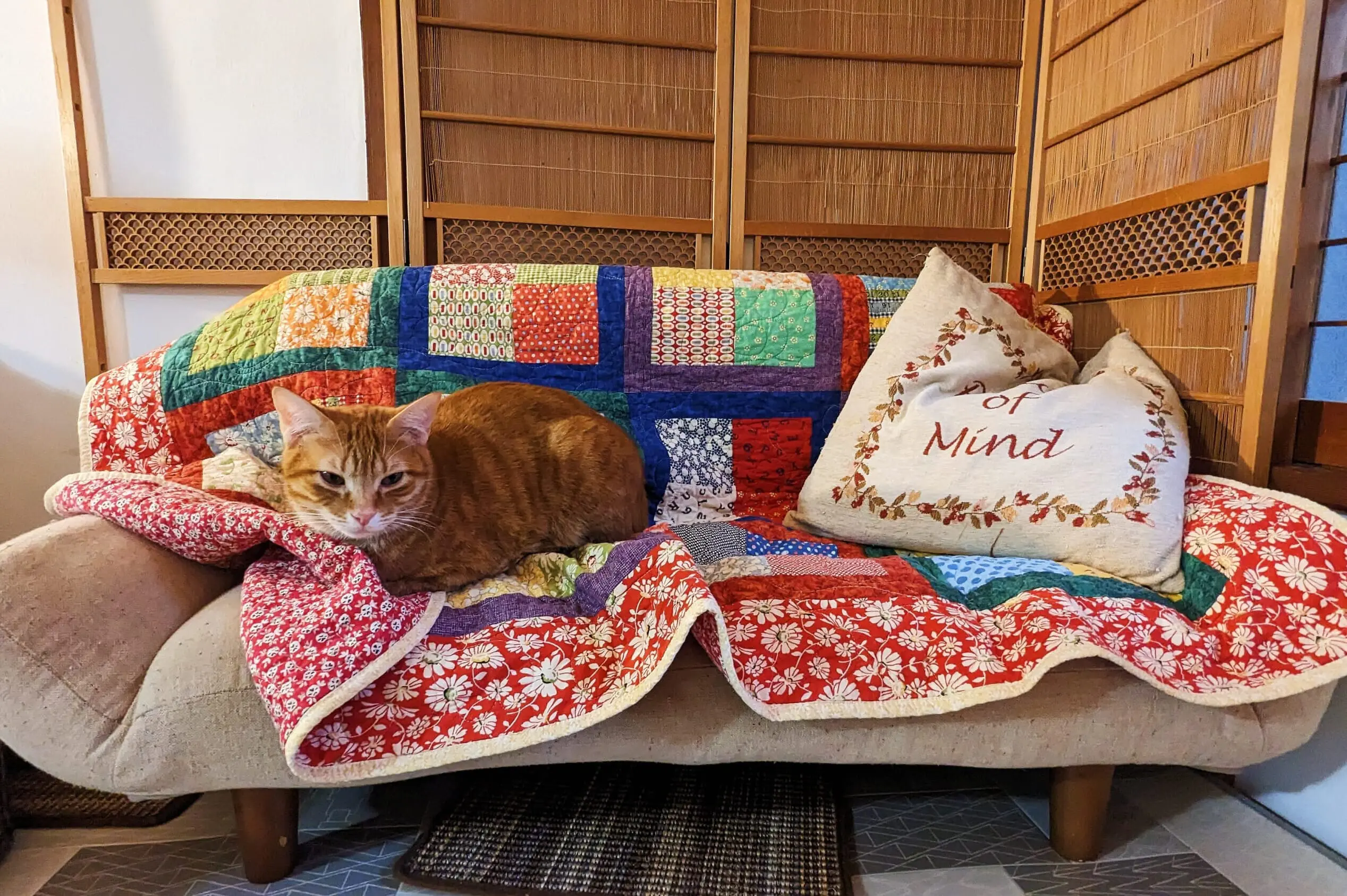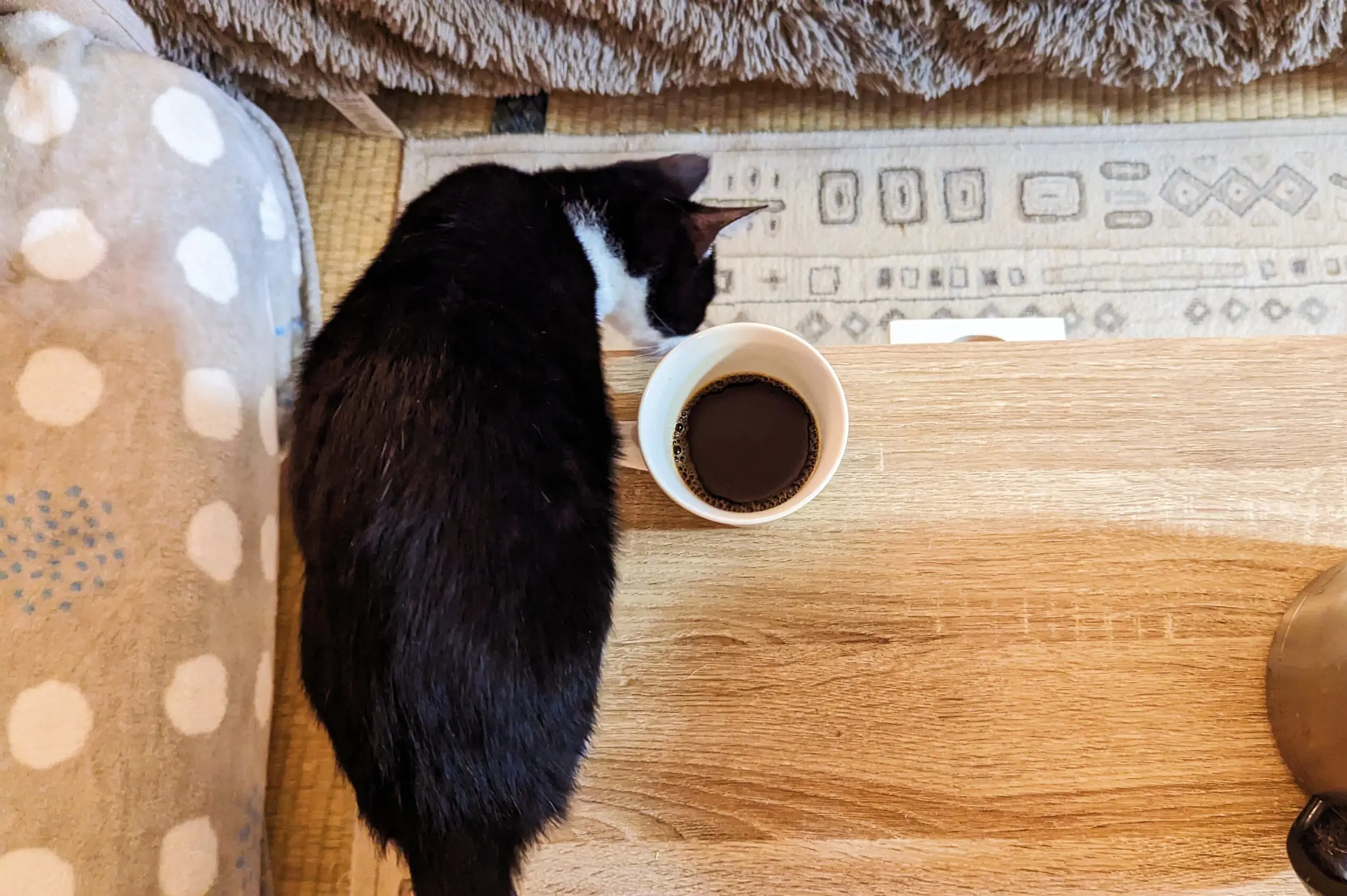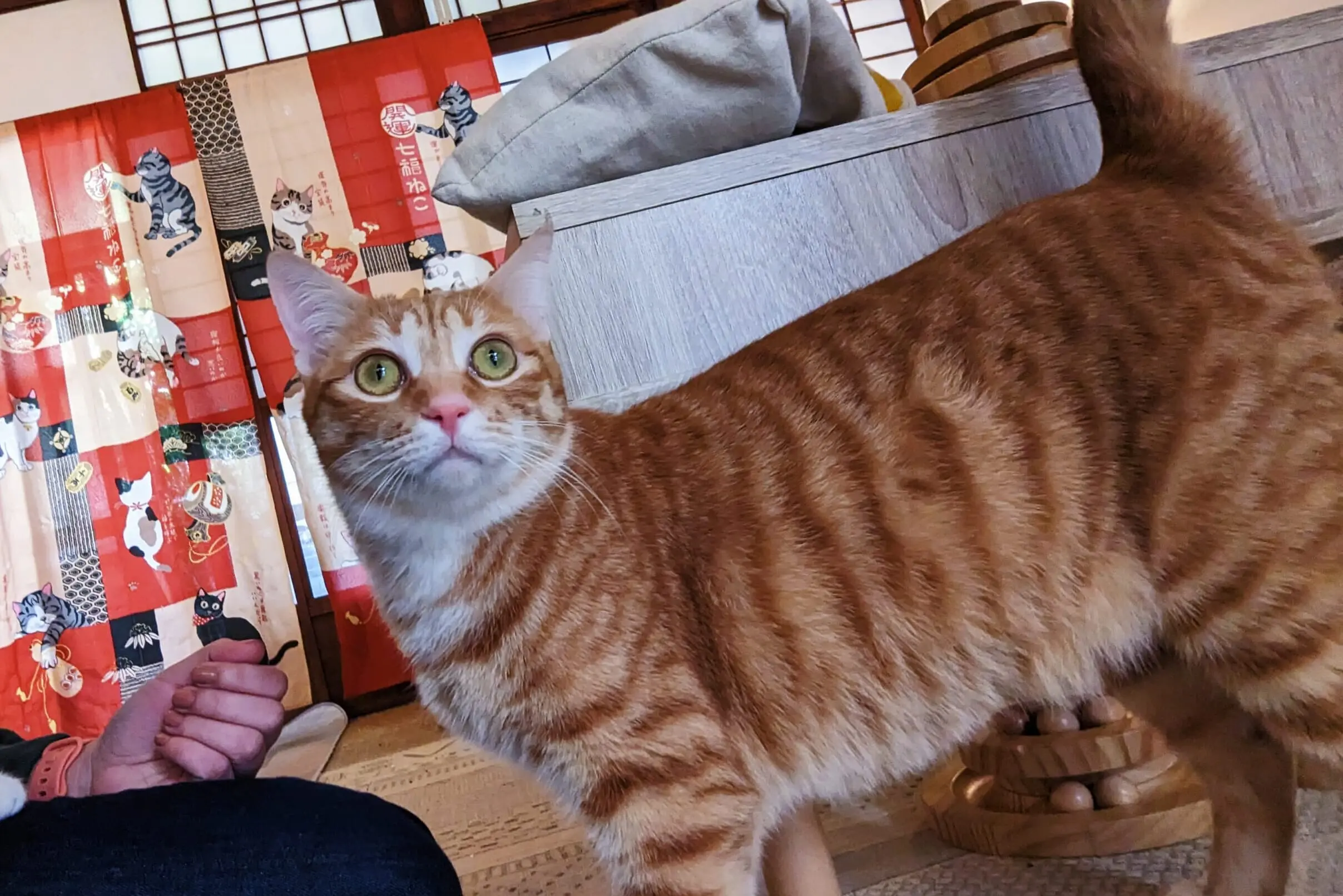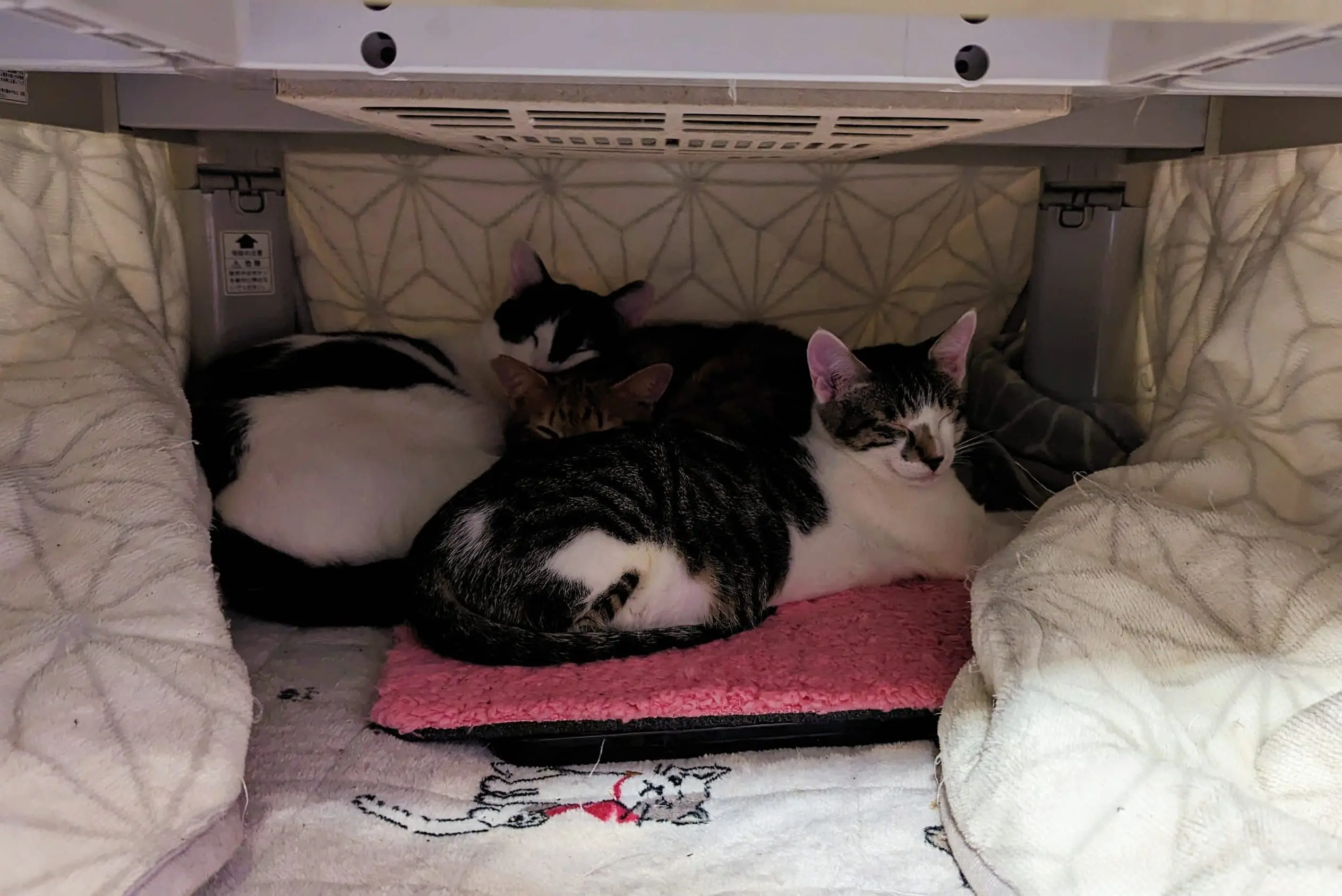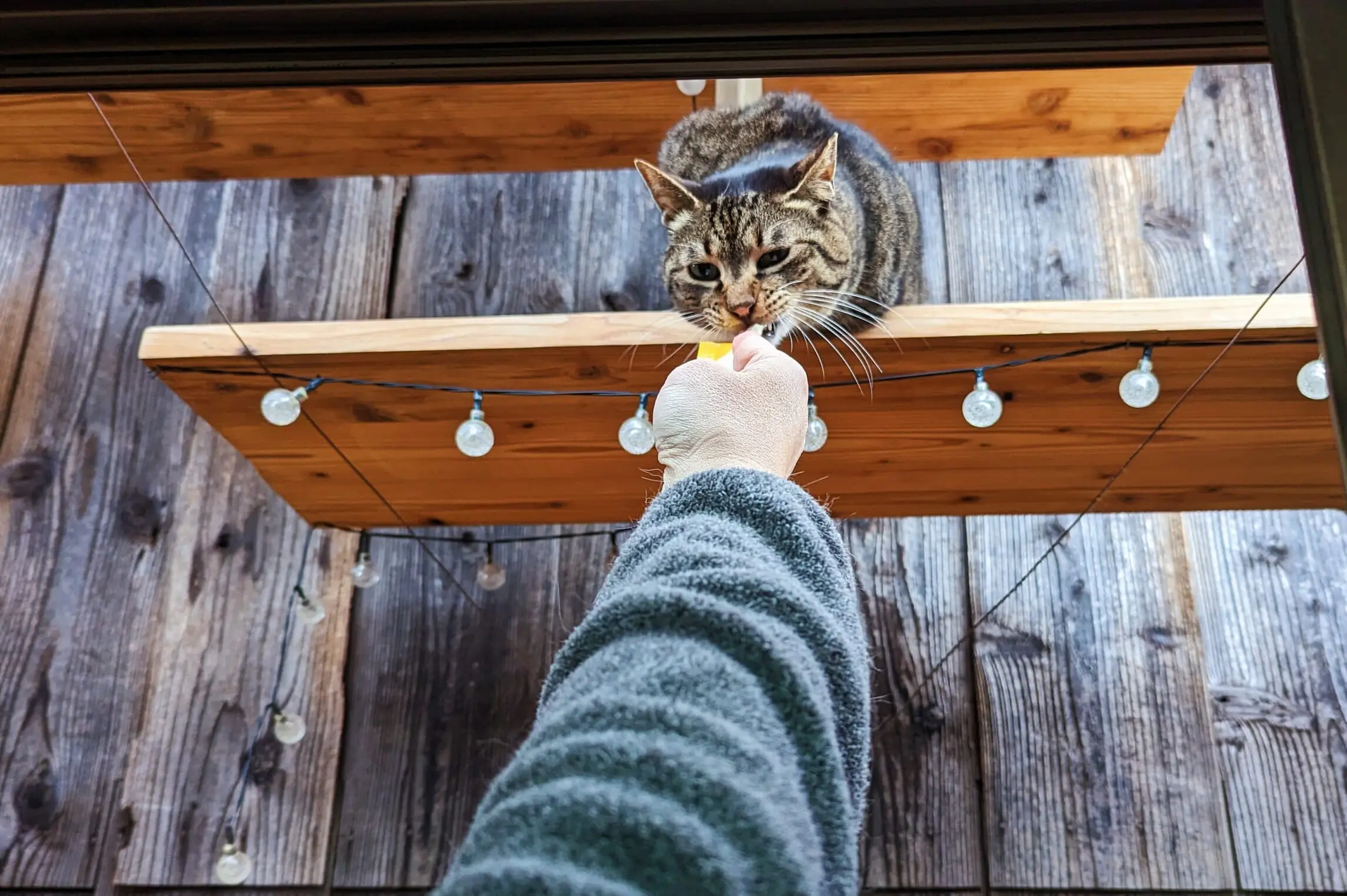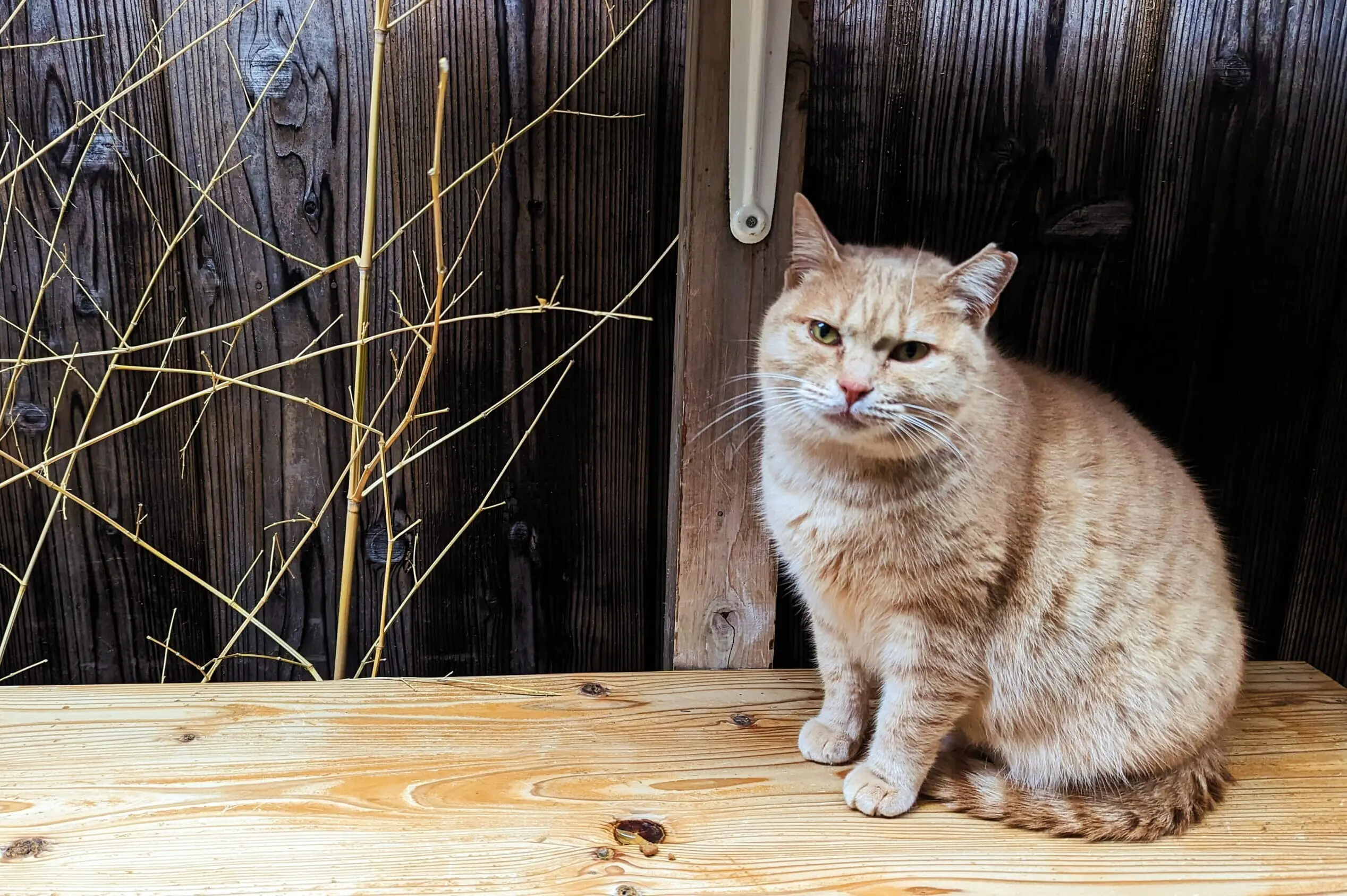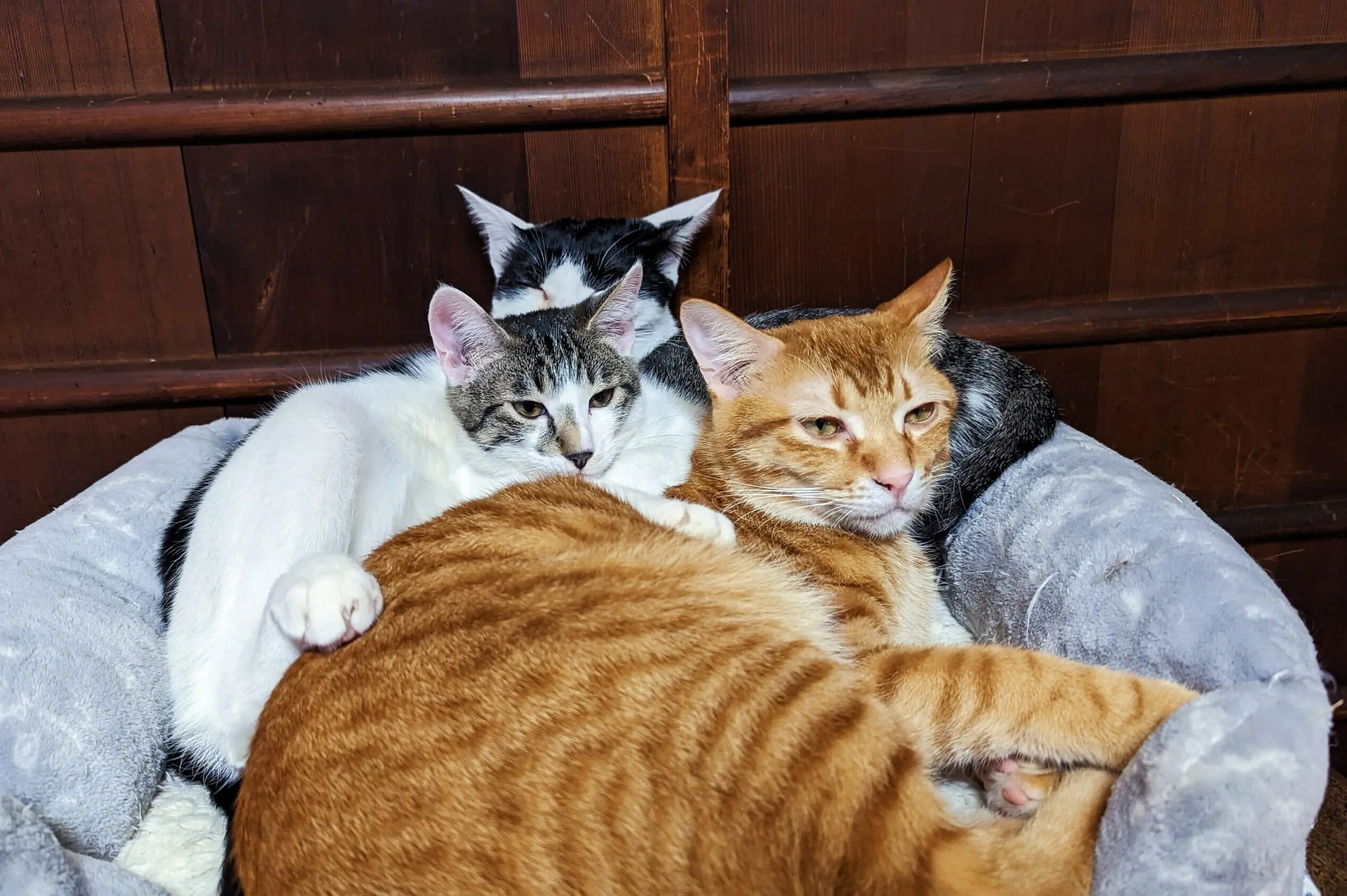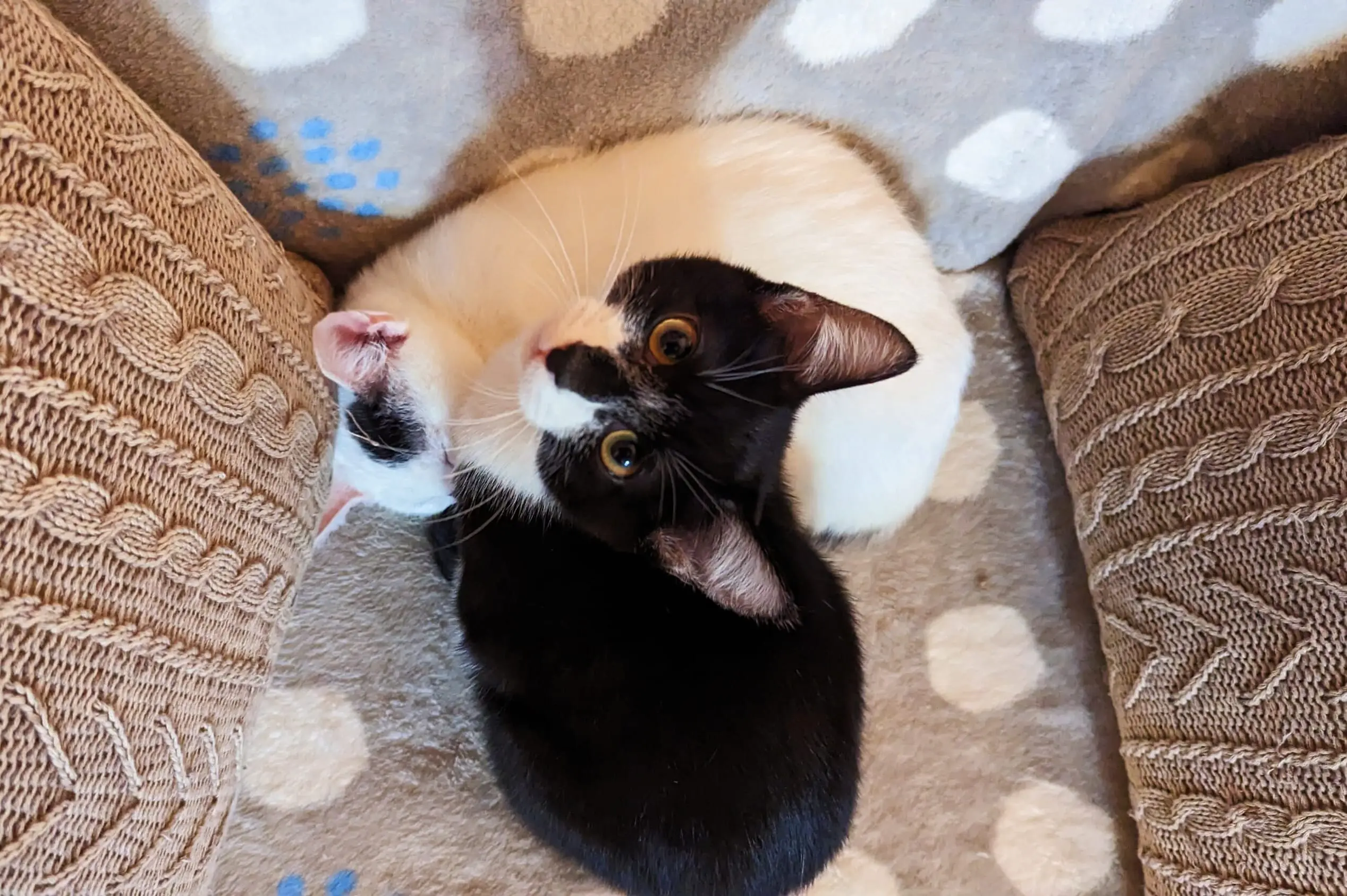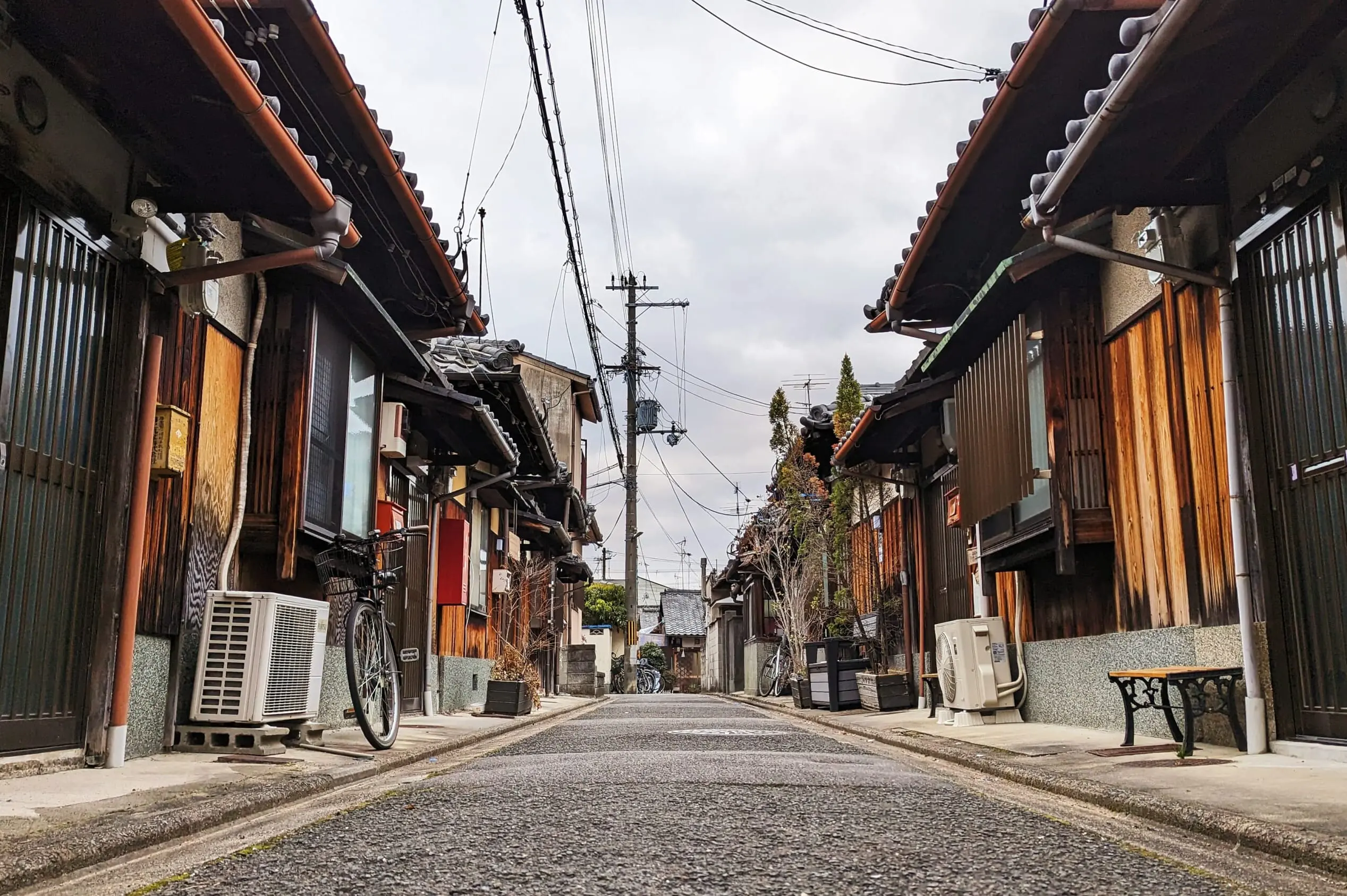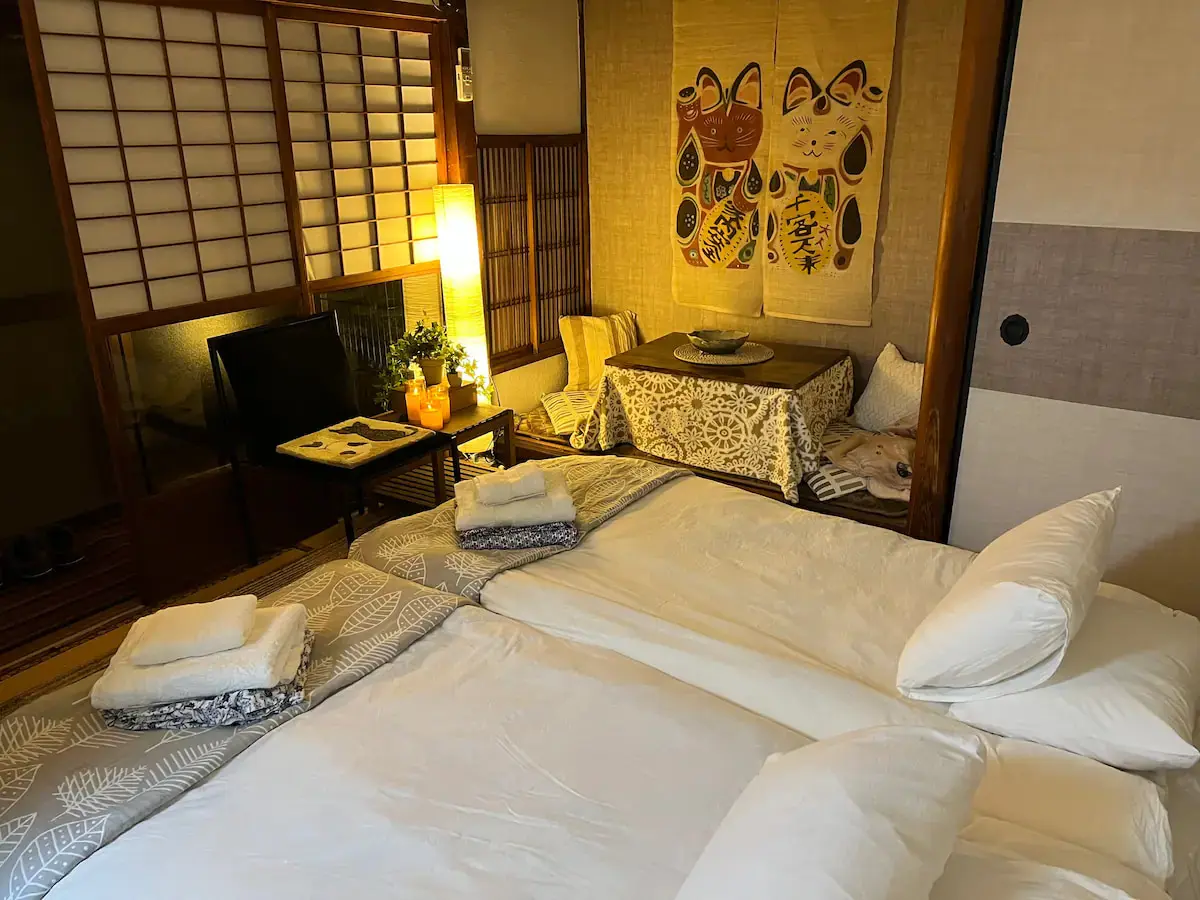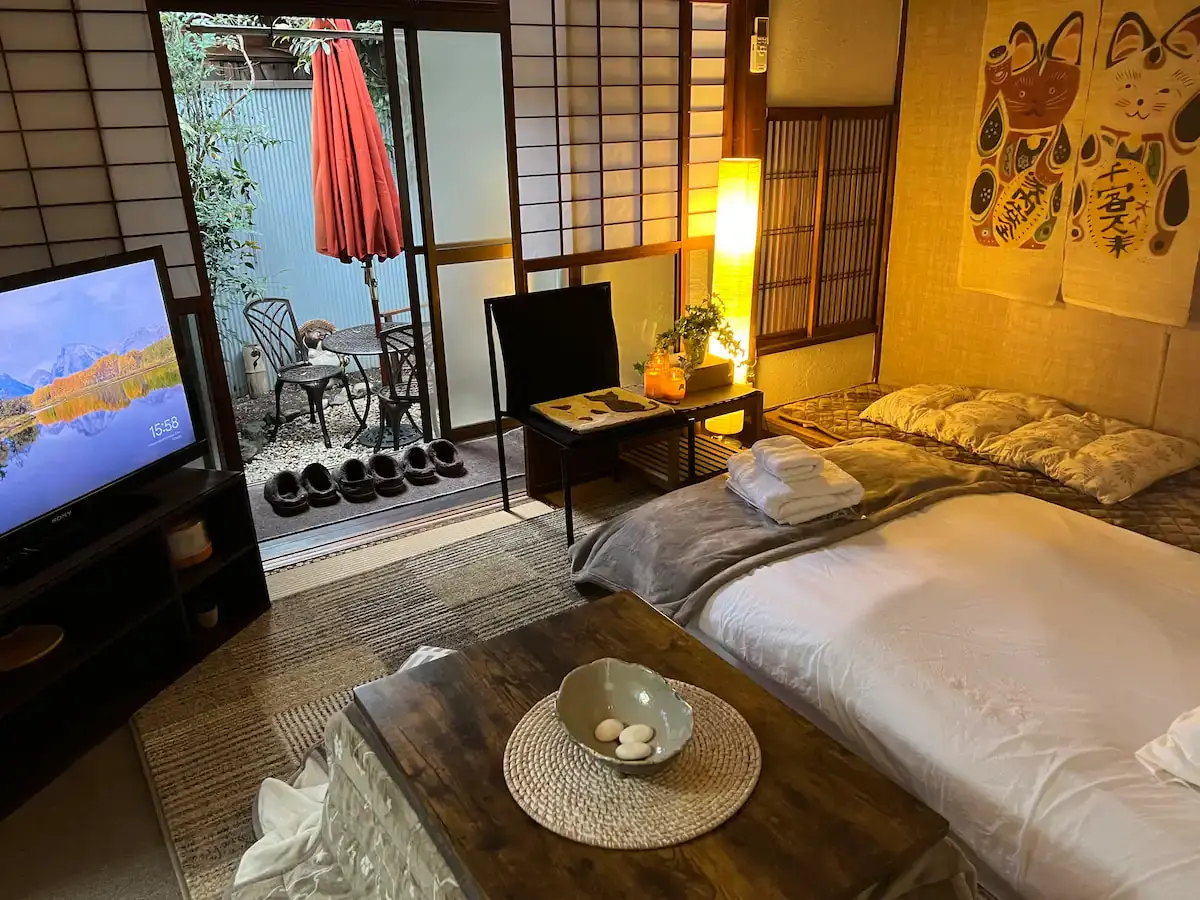Away from Kyoto’s tourist-filled streets stands a row of traditional machiya (wooden townhouses), a ubiquitous architectural feature of Japan’s ancient capital. A random passerby would probably not have thought these buildings in the quiet district of Uzumasa any different than the other old houses. Anyone who takes a closer look, however, will find the main residents here are playful felines seeking new owners. These machiya, with their shiny and well-maintained wooden exteriors, are currently used by the Japan Cat Network (JCN), a non-profit animal rescue organization. The JCN runs three things in Kyoto: a cat shelter, a cat café and rental guesthouses adoringly called Maneki Machiya.
Coffee With Cats
Walking down the street, you’ll immediately notice the main visitors’ cat area in one of JCN’s machiya buildings. It has a sign “Coffee with Cats.” Most probably, a cat or two will be hanging out by the window waiting for the next passerby to give them some affection. Coffee with Cats is JCN’s weekly cat café event that started during the height of the pandemic.
“During Covid-19, there were no guests and there was an increasingly growing cat program (with an accumulating number of rescued cats). I was searching for ideas to keep things going until guests returned,” Susan Roberts, founder of JCN, explains. “One shelter visitor mentioned that she enjoyed the experience of visiting the rescued kittens more than she did a (regular) cat café. From that day, I immediately started organizing weekly events. We held our first event in December 2021.” That was when the Coffee with Cats idea took off.
A perfect way to spend a lazy weekend afternoon, Coffee with Cats only happens on Sundays and lasts two hours, creating a more intimate atmosphere compared to other animal cafés. Opening the door to the house, numerous bright and curious eyes will immediately be cast upon a visitor. 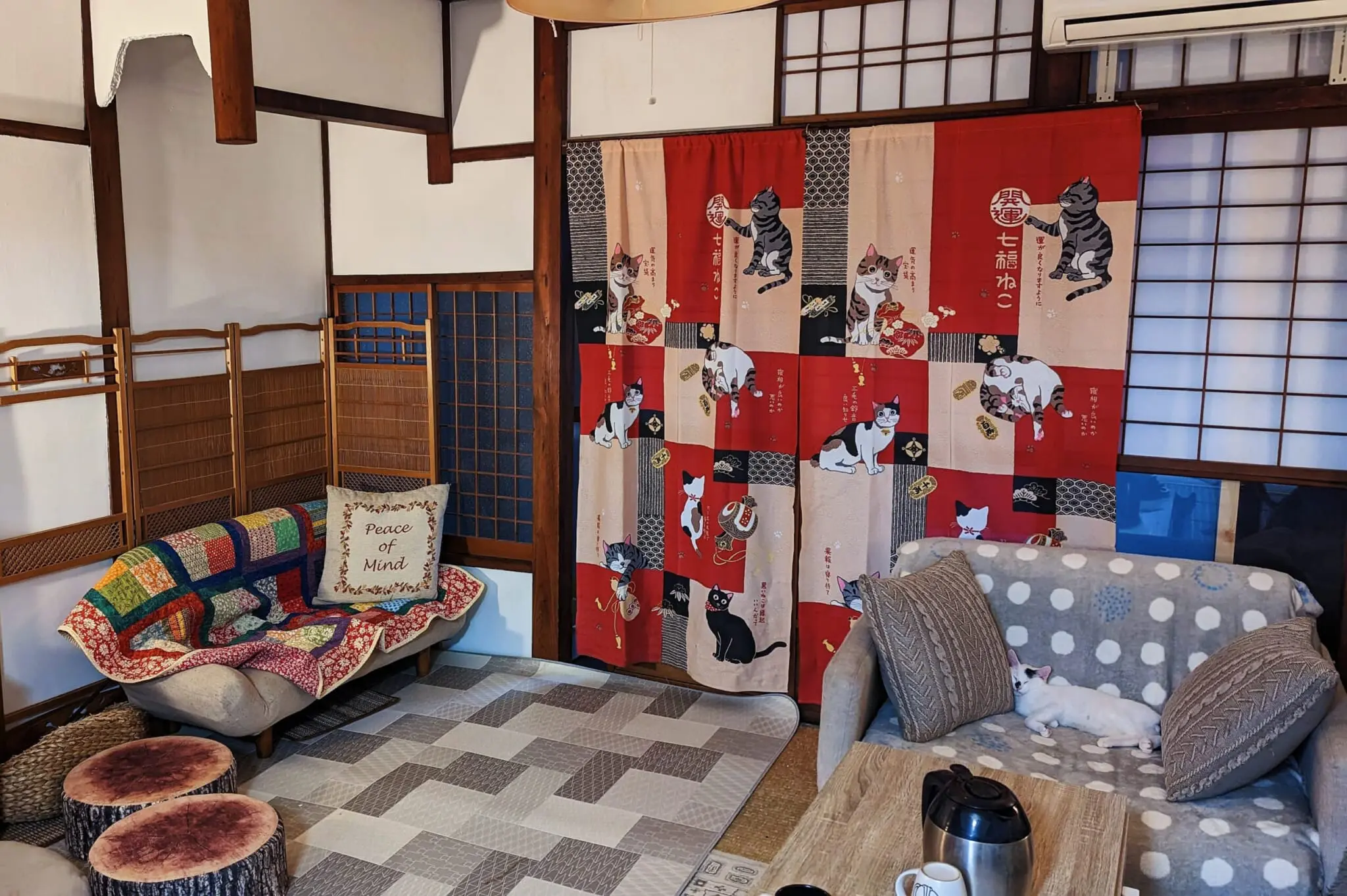
Every corner of the room from the living room to the outside ‘catio,’ is filled with friendly and energetic kitties. One or two cats might approach immediately and try to sit on your lap even before you sit down. Others just run around the whole space, miraculously managing to avoid hitting the mugs on the table.
Meanwhile, guests are welcome to use the cats’ favorite toys and give them their favorite treats to bond and socialize with those that have been rescued. Indah Wijayanti, a 36-year-old Kyoto resident from Indonesia and a past Coffee with Cats visitor, recalls her experience, saying, “It felt so good after playing with them. It was a perfect way to relax.”
You can reserve a spot at the Coffee with Cats on Sundays by emailing japancatnetwork@gmail.com.
Japan Cat Network Shelter and Adoption Activities
JCN in principle practices Trap-Neuter-Return (TNR), whereby they try to put the cats back in their local community after being spayed. However, not every rescued cat is released back to where it came from. Those that the organization deems vulnerable, such as the kittens and the severely impaired, are kept in the shelter. Later on, many of them are put up for adoption or foster care after being treated. At the time of writing, the shelter has about 27 resident cats with 13 of them living in the main visitors’ area where they can encounter human guests.
“Cats in this area are young, friendly, and are adopted out. And then replaced with [other] rescued kittens,” Roberts says. Those not shown to visitors are the very young kittens, the injured, the sick or otherwise regarded as too shy to interact with humans.
Looking at how affectionate and playful many of the cats are, it’s no surprise a good number of them get adopted. In fact, Simba, a one-year-old ginger who resides in the main visitors’ area, found an adopter the day after this writer’s visit. “He’s really adorable. He’s got the cutest eyes and a little rabbit tail. I’m not surprised he got chosen,” Roberts said.
When asked who the most sociable ones were, however, Roberts pointed to two tuxedo cats, Hearts and Freckle, who are siblings. Meanwhile, the rowdiest ones are a family of ginger cats fondly called the Weasleys.
Maneki Machiya Guesthouse
Staying true to its namesake, Maneki Machiya is as welcoming as the famous maneki neko (lucky cat). Simple and unassuming in appearance, these houses have cozy furnishings and a warm ambiance. Guests can relax while also staying in a little piece of history.
Maneki Machiya are in fact five rental machiya houses managed by JCN. They are located just across the street from the main visitors’ area and cat café. Guests can stay at Maneki Machiya for ¥8,000 to ¥11,500 per night, depending on the room they choose. Staying guests at Maneki Machiya are welcome to visit the cats in the café area any time during their stay. “We have various opportunities for people to interact with cats,” Roberts says.
JCN’s two projects, Coffee with Cats and Maneki Machiya, originally started out as a source of funding for the shelter maintenance and rescue activities of the organization. However, the projects came with other opportunities as well: to introduce and spread the practice of TNR and run a rescue shelter in an effort to decrease the number of stray cats in Japan and to help find a permanent home for these feline residents.
Support the Japan Cat Network
In addition to the Kyoto shelter, JCN also manages another rescue house in Tokyo. Monetary donations to the organization can be made through its website. As for food and supplies donations, the Kyoto and Tokyo shelters have their own respective Amazon wish lists as well.
This article is a collaboration between TW and Akita International University, Global Communication Practices (graduate school).

